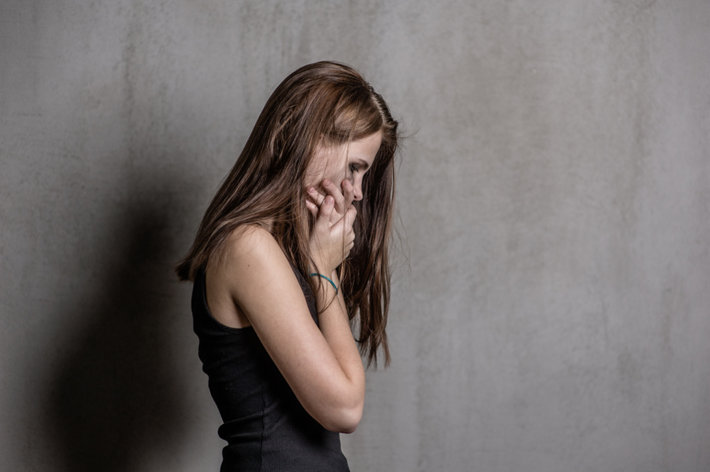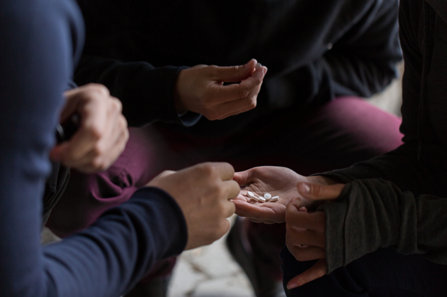The Subtle, Invisible and Deadly Pressure to Remain Silent

There’s nothing so awfully bad about keeping your cards close to your chest. You don’t have to reveal everything you know to everyone. But in this world we live in today, there is simply way too much silence. Or rather, too much silence at the wrong times. And people are dying as a result. Too many of them are young people who have not even experienced adulthood, or have only just become adults.
This silence works in several different ways. And each way can mean lasting trauma or a loss of life. Here’s what I’m talking about.
- The pressure to fit in can lead a young person to yield their own values and morals so they can become someone they think others will like. But then it becomes very difficult to admit to one’s parents or other people who might help that they have given up what they believed or were taught. So they keep silent.
- Others watching young people getting caught in this trap keep their mouths closed, too. After all, they don’t want to invite the criticism of their friends or be ostracized.
As an example of these first two points, think of a couple of young women—friends for years—who go off to college. They are not prepared for the free-wheeling attitudes toward drinking and sex they discover. Trying to keep up with others around them, they go to fraternity parties and drink. At one party, one of the girls is quite drunk when a fraternity brother takes her into his bedroom and rapes her. The girl stumbles out weeping an hour later. Both girls keep silent about the entire incident, not wanting to be rejected by everyone else who seems to think this kind of thing is “normal.”

- Surveys reveal that most schools are inundated with drugs and alcohol. Students arrive at school drunk or stoned, use drugs or drink on campus, leave campus to use drugs or drink or sell their products on campus. But still, few students say anything.
To be more specific on this point, here’s the results of a survey done in 2012:
- 68% of American high school students responded that some of their classmates drink, use drugs or smoke during the school day
- 44% of students know about someone who sells drugs at their school
- Of these 44%, nine out of ten reported that the drug was marijuana, 24% said they knew someone selling prescription drugs, 9% said cocaine and 7% said ecstasy.
- The same silence is at work in our neighborhoods and cities. In our towns, we see someone who seems to be struggling with drugs, alcohol or perhaps some kind of abuse. The social pressure seems to be on the side of staying silent, of letting others work out their problems, of not embarrassing them by speaking up.
Silent Students, Silent Schools
So why don’t students say anything? Why isn’t every single drug-using or drinking student outed? Why are the drug dealers not identified and dealt with?
I can remember in my own high school days, there was only one girl I knew who was said to be a drinker. And I’d met a couple of kids older than I was who had some drugs. Why didn’t I say anything? About the drinking, because I had no idea who to talk to or what to say or if there was even a problem. About the drugs, because of a complete lack of education on my part. I had no education that drugs were harmful or dangerous. The first I ever heard of drugs was in school, not at home. But this was admittedly a pretty long time ago. The drug situation in our schools is radically different and vastly more dangerous now.
This silence also exists because of the secret lives that teens so very often lead. They’re separated from their parents and siblings by the tacit agreement that when you are accepted into a group or society, you keep that society’s secrets.
Justifications
How do we justify this silence? We try to make a decision on what to do about a confusing situation and we come up with conclusions like this:
- It’s none of my business
- I don’t want to get her in trouble with her parents (or school).
- It’s her life, not mine.
- I’ll talk to him later, if it gets worse.
- He didn’t tell on me when I got into that mess before.
- Everyone will hate me if I tell on her.
- Everybody is doing the same thing.
- He hasn’t been hurt so far.
- No one else is speaking up.
- I’m no better than she is.
- I’ve was doing those same risky things in my day.
- Who am I to judge him?
- She’s an honor student so she must know what she is doing.
Maybe there were days when we could get by with standing silently on the sidelines. But those days are gone. This is the age of fentanyl and literally hundreds of other dangerous drugs. This is when marijuana and its concentrates are strong enough to cause hallucinations and psychotic breaks.
This is when youth need to be taught to look out for each other—even to the point of making dangerous behavior known to adults. At this time, covering for a friend who is using drugs could be fatal. And covering for a person who is drinking, especially if they are drinking and driving, has always had the ability to result in fatalities.
It’s the Perfect Time for Parents to Make a Change

It’s not easy to create change in this area. These habits are deeply ingrained in our social norms. Change must be created with caring education and gentle insistence.
Parents need to educate their kids—or siblings or friends or anyone else who thinks they are doing others a favor by keeping their self-destructive behavior a secret—that the time for silence is over.
At the same time, there needs to be some way of implementing a solution. And that’s a touchy subject, of course.
But consider this:
How many parents whose children were lost to an overdose wish with all their hearts that someone had told them early on what was really going on? The same with parents of young people who die from alcohol poisoning.
Far better than silence is for one parent to take another parent aside and give them specific information on their child’s drug or alcohol use. At that point, it’s in the drug-using child’s hands what happens next.
It’s also better to enlist the assistance of a school principal, guidance counselor or law enforcement’s School Resource Officer to weed out those students who think it’s acceptable to sell or use drugs in school.
At this time, lives depend on these secrets being found out. Maybe twenty or thirty years ago, that wasn’t true nearly as often.
Today, being a friend means making sure your friends stay alive and that someone who can be trusted with the information knows when an underage person is drinking or a person of any age is abusing alcohol or drugs.
It’s going to take education. In fact, so much of the whole problem of drugs and alcohol is going to require education on thinking in a different way. This education to break the unspoken vows of silence is just one small aspect of the larger effort to save lives.


 ®
®